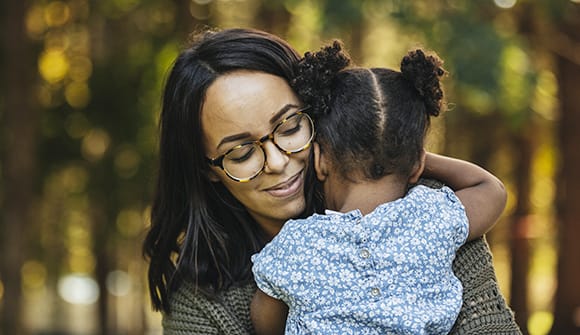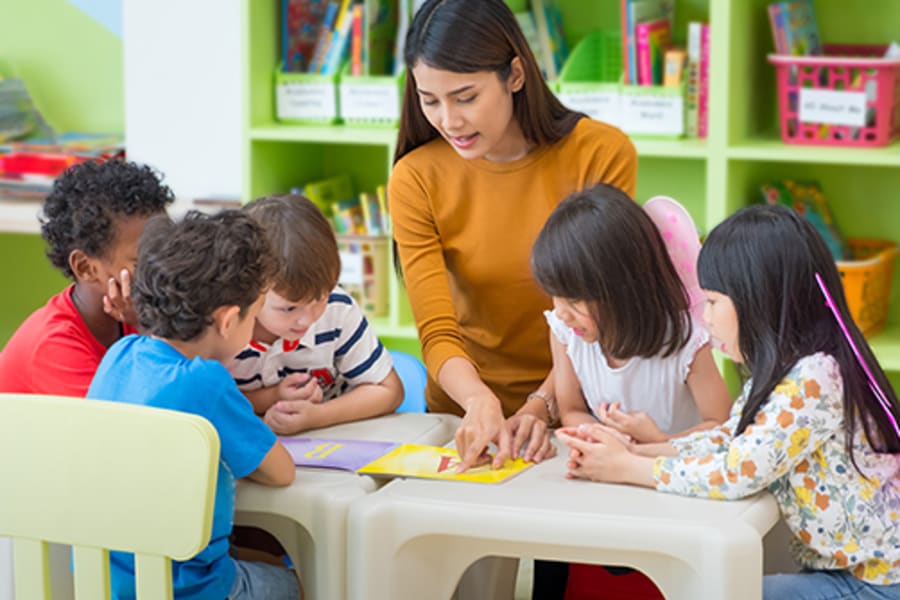Infant emotions
Mental health needs for babies and toddlers.
Article Author: Beverly Wong-Ken
Article Date:

A baby's world revolves around sleep, food and more sleep. A toddler is focused on play and exploration. These little people couldn't possibly have a real care in the world, right? Because infants and young children typically lead such uncomplicated lives, people rarely consider their mental health needs.
Francesca Varallo Sims, PsyD, director of education and training at Baptist and Wolfson Children's Behavioral Health, explained the importance of mental health in little ones and provided ways for parents to promote healthy emotional development.
Aware from the start
"Social and emotional development begins at birth. Some may even say before!" said Dr. Varallo Sims. "This can be seen in an infant's ability to be soothed by hearing their parent's voice or seeing their face, and seeking comfort by being held or rocked when distressed. Newborns look for this connection early on to regulate their emotions."
Almost immediately, children are aware of their surroundings and their needs. So what happens when they aren't getting what they seek?
"When a child's needs are neglected, or they endure chronic periods of stress, their development can be negatively impacted," Dr. Varallo Sims explained. "Lack of predictability and a stressful environment can disrupt a child's emotional and physical development. An unstable parental attachment or trauma may also impact their social-emotional growth, like the ability to form trusting relationships with others.
Building baby's mental health
In addition to being there to regularly support and meet your baby's emotional and physical needs, it's important to help little ones recognize, understand and manage their own feelings as they grow.
"Once children are old enough to talk, providing them with regular opportunities to name emotions when they occur is helpful," said Dr. Varallo Sims. "As situations arise, parents can model coping skills and provide language for the emotions they observe in their child."
How can you do this? Dr. Varallo Sims explained, "If your child starts crying over a broken toy, you might say, 'I see you're feeling sad, maybe because your toy broke. Sometimes we cry when we're sad, or feel frustrated when things don't go our way. Is that how you're feeling, sad?' Allow the child to acknowledge and name the emotion and try using coping activities together like deep breathing, drawing or going for a nature walk."
Telling tantrums
With little ones who can't yet speak or are still learning how to express their emotions, indicators of poor mental health might be hard to identify. What are the telling signs your baby or toddler may need additional support?
"It's important to look out for any significant change in their normal functioning and personality," said Dr. Varallo Sims. "In children, symptoms may include fatigue, changes in appetite or sleep patterns, stomach aches, bed-wetting (for potty-trained children), headaches, and generalized complaints of pain."
She added, "In smaller children, you may also notice increased crying, more tantrums or general irritability, severe difficulty with transitions, not meeting developmental milestones, or showing less eye contact and emotional expression (little smiling behavior). As with all concerns with babies and children, it's best to bring these up during your regular visits to the pediatrician in order to determine if there is a medical reason or if a mental health provider is needed to assess further."
Mental and emotional health are important to everyone's well-being. Wolfson Children’s has tools to support children’s mental health and help kids and teens navigate challenges with confidence and care. To learn more, click here. Additionally, Wolfson Children's Behavioral Health provides compassionate and individualized care for a full range of pediatric mental health conditions. To make an appointment with a mental health provider, call 904.376.3800.



